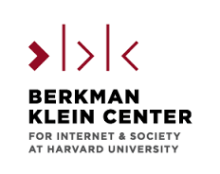Next City Covers Tennessee's Municipal Broadband Status
Next City - April 20, 2017
Tennessee Bills Send Message on Municipal Broadband
Written by Josh Cohen
In a world increasingly reliant on high-speed internet for all facets of life, about 34 percent of Tennesseans lack broadband access. Two state bills were considered this year to remedy that. One would’ve allowed city-owned high-speed internet infrastructure to expand at no cost to residents. Another outlined an offer of $45 million in subsidies to private internet service providers to build the same infrastructure. Only the latter passed.
...
Unsurprisingly, surrounding towns and suburbs want access to that network. EPB wants to expand as well. But they cannot. A state law pushed by private telecom companies prohibits public utilities with broadband networks from expanding beyond city limits. The Federal Communications Commission overturned that law in 2015, but an appellate court reversed the FCC’s ruling, meaning the law still stands.
State Senator Janice Bowling’s bill would’ve changed Tennessee law to allow municipal broadband providers to expand beyond city limits. Tullahoma, a city in Bowling’s district, also has a municipal broadband network. EPB said it could expand its network infrastructure with cash on hand and private loans. But both Bowling’s bill and its companion in the House died in committee.
Instead, the legislature passed the Tennessee Broadband Accessibility Act, a bill pushed by Governor Bill Haslam. It provides $45 million in tax breaks and grants to private companies such as AT&T and Comcast to build broadband infrastructure in communities that need it.






 To be clear: EPB wanted to build out its gigabit fiber network to many of these same communities using money it has on hand or private loans at no cost to taxpayers. It would then charge individual residents for Internet service. Instead, Tennessee taxpayers will give $45 million in tax breaks and grants to giant companies just to get basic infrastructure built. They will then get the opportunity to pay these companies more money for worse Internet than they would have gotten under EPB's proposal.
To be clear: EPB wanted to build out its gigabit fiber network to many of these same communities using money it has on hand or private loans at no cost to taxpayers. It would then charge individual residents for Internet service. Instead, Tennessee taxpayers will give $45 million in tax breaks and grants to giant companies just to get basic infrastructure built. They will then get the opportunity to pay these companies more money for worse Internet than they would have gotten under EPB's proposal.



